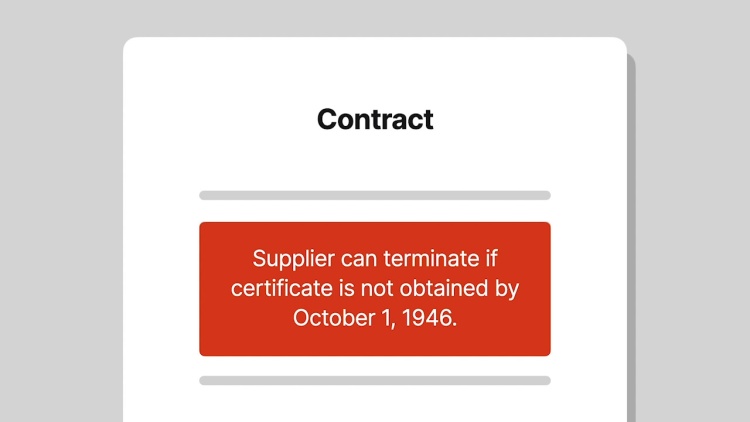Skelly Oil Co. v. Phillips Petroleum Co.
United States Supreme Court
339 U.S. 667 (1950)
- Written by Robert Schefter, JD
Facts
Phillips Petroleum Company (Phillips) had separate contracts with Skelly Oil Company (Skelly), Stanolind Oil and Gas Company (Stanolind), and Magnolia Petroleum Company (Magnolia) (defendants) to purchase natural gas reserves. Phillips had an agreement to sell the gas reserves to the Michigan-Wisconsin Pipe Line Company (Michigan-Wisconsin), which needed the gas as part of a plan to construct and operate a natural gas pipeline from Texas to Michigan and Wisconsin. Michigan-Wisconsin needed a certificate of approval from the Federal Power Commission before commencing the project. Each of the contracts between Phillips and the defendants contained a clause allowing the defendants to terminate their individual contracts if Michigan-Wisconsin failed to get the federal certificate of approval before October 1, 1946. Termination of the contract, however, had to be made prior to the date on which Michigan-Wisconsin received federal approval. The certificate was granted to Michigan-Wisconsin on November 30, 1946, but not made public until December 2, 1946. The defendants terminated their individual contracts on December 2, 1946. Phillips and Michigan-Wisconsin (plaintiffs) sued defendants in the United States District Court for the Northern District of Oklahoma under the Federal Declaratory Judgment Act (the Act), 28 U.S.C. §2201. The complaint sought a declaration that the contracts remained valid, because they were not terminated prior to receipt of the certificate of approval. The district court ruled that the contracts were not terminated and remained binding. The United States Court of Appeals for the Tenth Circuit affirmed. The United States Supreme Court granted certiorari on the question of whether the case arose under federal law and enabled the district court to award relief under the Act.
Rule of Law
Issue
Holding and Reasoning (Frankfurter, J.)
Dissent (Vinson, J.)
What to do next…
Here's why 907,000 law students have relied on our case briefs:
- Written by law professors and practitioners, not other law students. 47,100 briefs, keyed to 996 casebooks. Top-notch customer support.
- The right amount of information, includes the facts, issues, rule of law, holding and reasoning, and any concurrences and dissents.
- Access in your classes, works on your mobile and tablet. Massive library of related video lessons and high quality multiple-choice questions.
- Easy to use, uniform format for every case brief. Written in plain English, not in legalese. Our briefs summarize and simplify; they don’t just repeat the court’s language.






